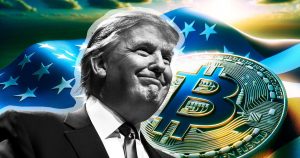DeFi Airdrops Under Scrutiny: The Legal Battle Over Securities Classification

In a pivotal development for the decentralized finance (DeFi) sector, the DeFi Education Fund has initiated legal action seeking to exempt airdrops from being classified as securities by regulatory authorities such as the SEC. This lawsuit represents a critical juncture in the ongoing debate over how innovative blockchain mechanisms fit within existing regulatory frameworks. Through this exploration, we will delve into the essence of airdrops in DeFi, the grounds of the lawsuit, and the potential ramifications for the DeFi ecosystem and regulatory landscape.
Airdrops: Catalysts for Community Growth and Participation
The Role of Airdrops in DeFi
Airdrops serve as a strategic tool within the DeFi space, allowing projects to distribute tokens directly to users’ wallets, often for free. This practice not only rewards existing community members but also attracts new participants, fostering engagement and encouraging widespread adoption of DeFi platforms and protocols.
The Controversy Over Securities Classification
The classification of airdropped tokens as securities by regulatory bodies has sparked considerable debate. Proponents of the DeFi industry argue that airdrops, by their nature, do not constitute investment contracts but are instead a means of decentralizing token ownership and empowering users.
The DeFi Education Fund’s Legal Challenge
Seeking Clarity and Flexibility
The lawsuit filed by the DeFi Education Fund seeks to challenge the existing regulatory stance on airdrops. By advocating for a clear distinction between airdrops and traditional securities, the fund aims to protect the innovative practices that underpin the DeFi sector from potentially restrictive regulations.
Implications for DeFi and Blockchain Innovation
The outcome of this legal challenge could have far-reaching consequences for the DeFi ecosystem. A favorable ruling might pave the way for greater innovation and flexibility within DeFi, while a decision upholding the current classification could necessitate significant adjustments in how DeFi projects operate and distribute tokens.
The Broader Conversation on Regulation and Innovation
Navigating the Regulatory Landscape
This legal battle underscores the broader challenges faced by the blockchain and cryptocurrency industries in navigating a regulatory landscape that was not designed with these technologies in mind. The case highlights the need for regulatory frameworks that recognize the unique characteristics of blockchain-based assets and facilitate rather than hinder innovation.
Global Perspectives on DeFi Regulation
As the DeFi sector continues to evolve, regulatory perspectives from around the world will play a crucial role in shaping its future. The lawsuit represents a critical moment in defining how decentralized technologies interact with traditional financial regulations, with potential implications for global regulatory approaches to DeFi.
A Defining Moment for DeFi
The DeFi Education Fund’s lawsuit marks a defining moment in the ongoing dialogue between the DeFi community and regulatory bodies. As the case progresses, it will undoubtedly influence the trajectory of regulatory policy, potentially setting precedents that will impact the future of decentralized finance. The DeFi ecosystem watches closely, hopeful that the outcome will foster an environment in which innovation can thrive within a clear and fair regulatory framework.





